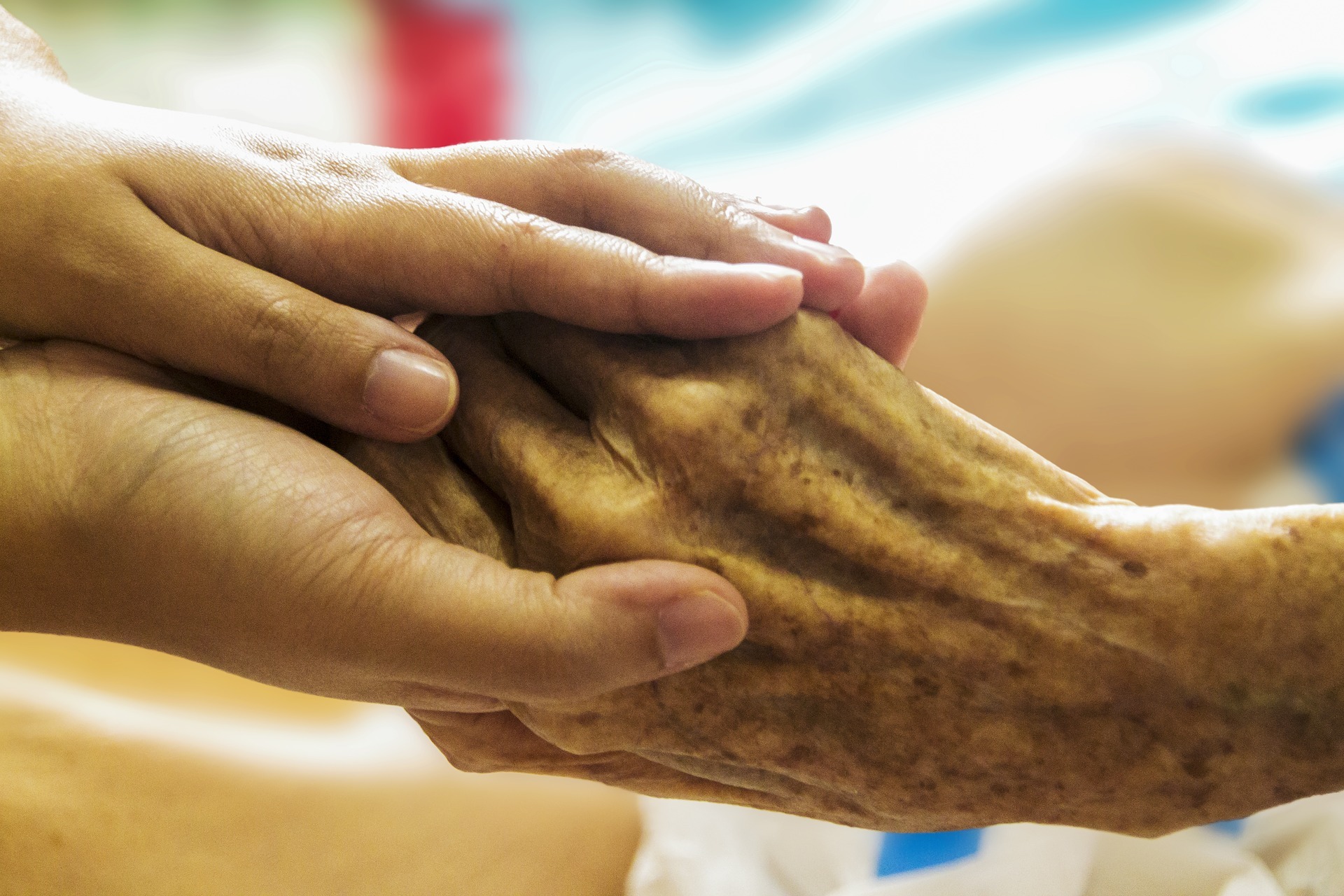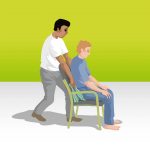Still people in retirement homes are dying lonely or in great pain. For mourners in the everyday life of the nurses hardly time or it is dismissed as unprofessional. Also, many professionals have hardly learned anything about terminal care in education. „Behind the silence is often the fear of doing something wrong,“ says Nelleke Jakob (50). The director of the project „Palliative Care“, which is funded by the GlücksSpirale, works at the Sozialservice-Gesellschaft (SSG), a subsidiary of the Bavarian Red Cross (BRK). She deals with the dying process and explains what makes a good companion.
„Many nurses are unclear when dying begins,“ says the Dutchwoman. Also in the research is wrestled, which period of dying is. „For me, the terminal care includes the last weeks and days before death,“ says Jakob. The signs are clear: residents are withdrawing. In conversations he or she talks more about dying. Typical phrases are „God could let me go to the bone,“ or more specifically, „It’s time for me to go now.“ A clear signal is also the adjustment of food intake. „Those who no longer eat, refuse to drink and just want to lie in bed, set off on their way,“ observed the trained nursing specialist.
Improve quality of life
Somewhat different is palliative care. The German Hospice and Palliative Association writes: Palliative care improves the quality of life of patients who are confronted with a life-threatening illness and their families. This is done by preventing and alleviating suffering, treating pain early, and other physical, psychosocial, and spiritual ailments. From this formulation, professionals conclude that palliative care covers a longer period of time. „In the Netherlands, they speak of a year before death,“ says Jakob. Thus, the palliative care of a resident begins much earlier than the terminal care. „An important indicator of this classification is the prognosis of the patient,“ says Jakob. Experience shows that in pancreatic cancer or certain brain tumors life expectancy is only a few months. In contrast to dementia. Those affected can often live for years.
Biography work
In order to adjust to the patient, the biography of the resident should be documented. Anyone who knows what Herr Maier likes to eat, which music Frau Schumann likes to listen to and which favorite fragrances she names, can easily incorporate this into daily nursing work, explains Jakob. Biography work also includes knowing which people the resident likes or who the animals are.
In senior citizen housing in Hof in Bavaria, there is a book of life, which is on the bedside table. Similar to a poetry album or diary, in which students enter their favorite stars or colors, members and relatives can write here down preferences of the resident. The question is whether a pastor or pastor is desired, which clothes the senior likes to wear or what his favorite food is. „The sooner the nursing colleagues know the details, the better,“ says Jakob. So that does not happen, what happened in a house in Hesse: There laid the social care classical music, the dying residents became restless. After blowing music from the player, he calmed down again. „If residents are no longer able to communicate their wishes and preferences, nurses should ask the family or their neighbors,“ Jakob gives a research tip.
Symptom control
The third aspect of palliative care is symptom control. Often the family doctor can take over the adjustment of the pain medication. Because at the end of life suffer pain no one today. That’s it, too, what many were afraid of. Severe shortness of breath or aggressive nausea no longer have to be. „If we control the pain, the desire for euthanasia declines,“ says Jakob.
Regardless of palliative care, the expert recommends completing a living will including emergency plan. And to name people who know the content. So it’s made exactly the way the patient wants it – and not otherwise. The experience also shows that there are always change requests. Also after these should be asked.
Attitude decides
Finally, the attitude of the companion is important for Palliative Care to work. „Death is like birth – something quite normal,“ Jacob puts it in a nutshell. In addition to all mourning, dying is part of life. Anyone who radiates this attitude often also makes it easier for the dying, who, even in the face of death, do not want to be a burden to anyone, as Jakob has observed.


